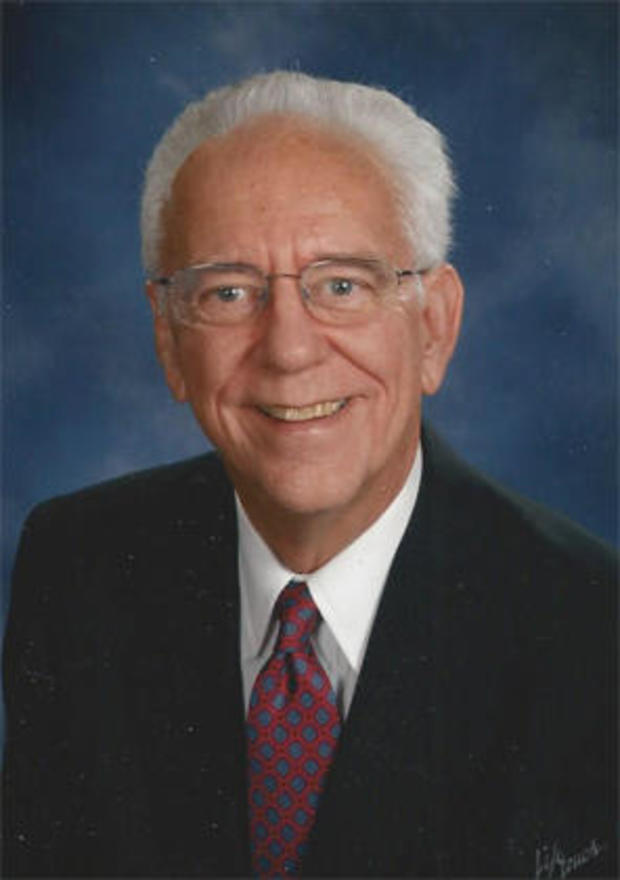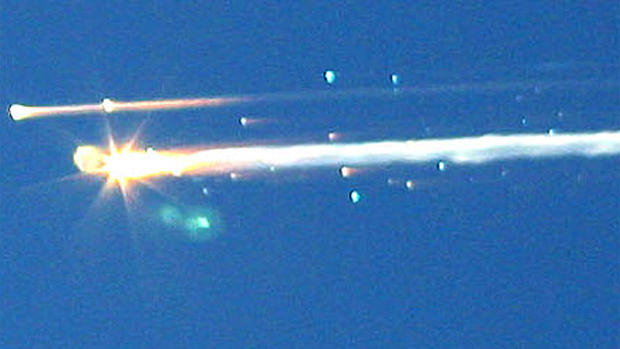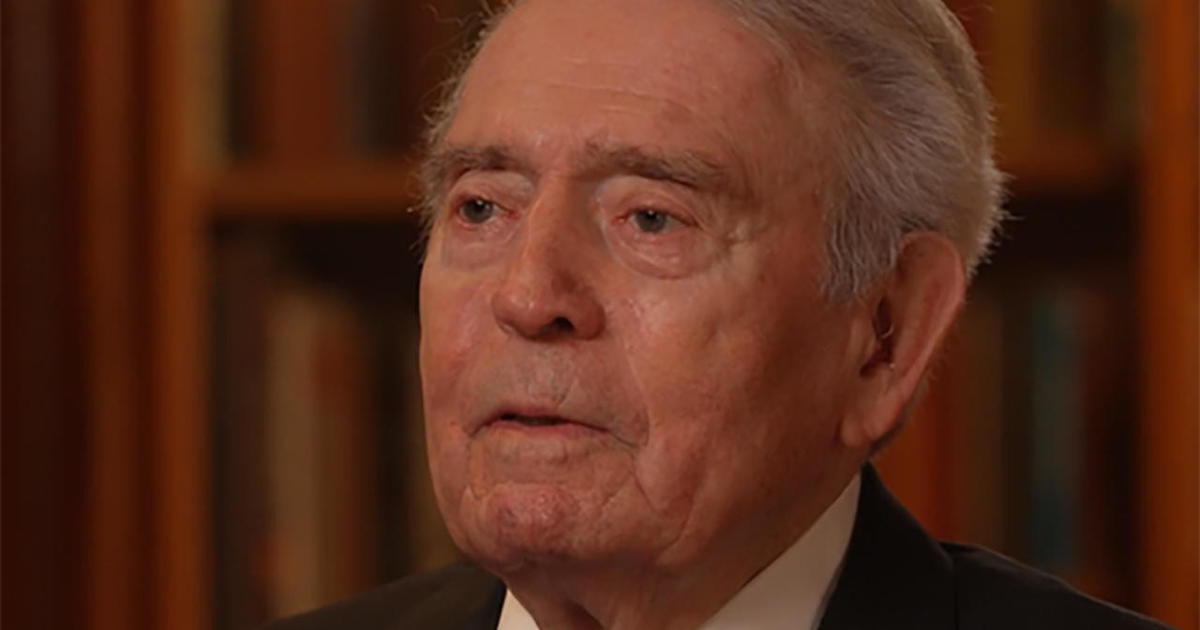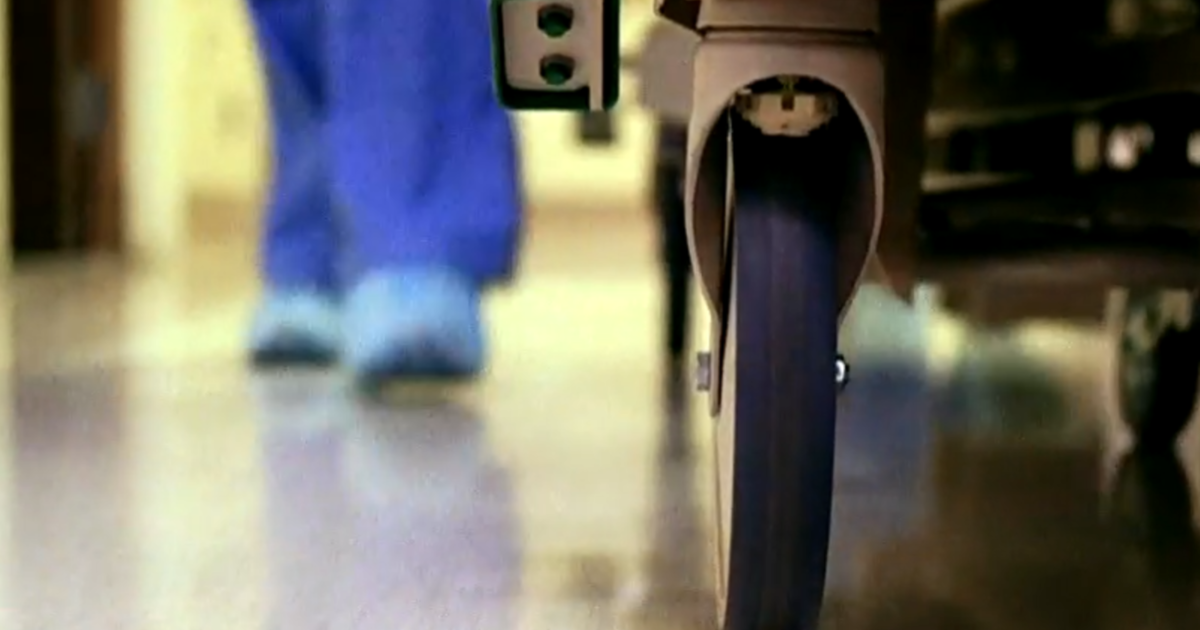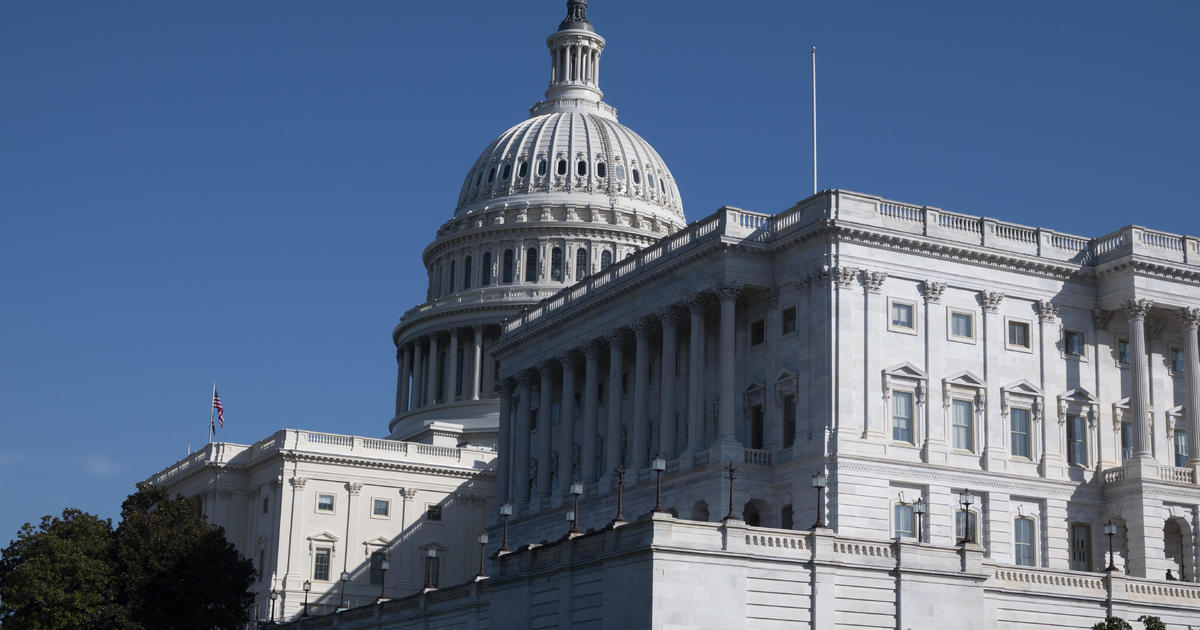Bruce Hall, veteran CBS newsman, dead at 76
Veteran TV newsman Bruce Hall, who covered more than 3,000 stories over 20 years for CBS News, including the 1986 Challenger disaster, dozens of hurricanes, revolutions, scandals and numerous presidential campaigns, died Tuesday. He was 76.
Widely respected for his diligence, unassuming manner and sense of fair play, Hall spent another 17 years with the NBC News Channel before retiring in 2007.
He then helped start the Suthers Center for Christian Outreach in the Atlanta area "as a way of giving back to the community," serving as its chairman for four years before stepping down earlier this year while being treated for cancer.
"He helped with everything we do here," said Susan Hamilton, a board member at the Suthers Center. "We have a food pantry, he helped with getting food from the Atlanta food bank, he helped with clients that we have, helped stock the shelves. We also do emergency financial assistance for people in our area for things like utility bills and rent and that sort of thing. He helped with that when he was needed. Anything that needed to be done."
Asked to describe Hall's impact, Hamilton said simply "huge."
An old-school "gentleman journalist," Hall relished his role as a network news correspondent, starting with CBS News in 1971 after graduating from the University of Missouri with degrees in journalism and speech.
In 1975, CBS anchorman Walter Cronkite invited Hall to join the network's team at the Kennedy Space Center to cover the Apollo-Soyuz Test Project and the launch of astronauts Deke Slayton, Tom Stafford and Vance Brand. The astronauts docked with a Russian Soyuz spacecraft carrying two cosmonauts in a symbolic act of cooperation highlighting the era of detente.
The mission gave Hall a chance to renew his childhood fascination with space exploration and he quickly became an expert, covering NASA's transition to the space shuttle program. He was at the spaceport on April 12, 1981, when the shuttle Columbia blasted off on the program's maiden flight.
"I will never forget the moments after the launch the way the sounds just completely enveloped you and you believed you felt the ground shaking," Hall recently recalled. "At this time many of us thought this would be the beginning of interstate travel to far off planets."
He went on to cover most of the early shuttle missions at Kennedy and at the Johnson Space Center in Houston, becoming the network's expert on shuttle operations and a mentor to younger reporters.
"Bruce was covering the space program for the evening broadcast and I was on our morning show," recalled Scott Pelley, anchor and managing editor of the CBS Evening News. "I could not have imagined a better mentor. Bruce understood the complexities of aerospace, the back alleys of federal bureaucracy and the inner passion of the men and women who extended man's reach to the heavens. Bruce was simply a great reporter in the highest traditions of CBS News."
Hall's planning was legendary. His notes for every likely eventuality covered most of the expansive anchor desk in the CBS News studio, so that he could quickly refresh his memory if something unthinkable occurred.
And on Jan. 28, 1986, it did. Seventy-three seconds after the shuttle Challenger blasted off on the program's 25th mission, the spacecraft disintegrated in a sudden conflagration, killing seven crew members, including high school teacher Christa McAuliffe.
Hall was at the space center when Challenger took off but he was not on the air live. After 24 successful flights, and with 16 planned for 1986, news agencies were backing off expensive, remote coverage of what increasingly appeared to be a routine event.
Instead, Hall decided to step outside the network's bureau at the Kennedy Space Center press site, 3.4 miles from the launch pad, to take in Challenger's liftoff the old-fashioned way, with his own eyes, and to watch the reaction of McAuliffe's parents, who opted to witness the launch from a nearby parking lot.
"I could see them, and I could see basically their anxiety as it came down to the launch period and then how happy they were when they saw the actual liftoff," he recalled in an interview before the 30th anniversary of the disaster in 2016. "You could see just tremendous joy in their faces.
"Then, when the explosion happened, I think I was like many of the veterans there, we knew immediately that this was a catastrophe. Christa McAuliffe's parents did not know that. They thought there was a problem, but they did not have any idea at all of what had happened."
Neither did anyone else, at least at first. NASA managers implemented a strict no-comment policy in the wake of the accident that frustrated Hall and other reporters. The agency eventually concluded the disaster was triggered by a breach in an O-ring seal between two solid-fuel booster segments, caused in part by a decision to launch in cold weather.
"I think they did a lot of damage to themselves and the agency with the way they handled the entire Challenger event," he said. "They were seen as almost like a god-like agency prior to this, and everybody came down on them, whether it was congressmen, reporters, or others. We lost trust in NASA after Challenger."
Could NASA have pulled off such a policy in the presence of social media?
"It would be completely different if it happened now," Hall said. "There would be people and staff broadcasting and writing 24 hours a day. ... You would have video from all kinds of places. And I think now, with so many more resources in the 24-hour news cycle, there would be people somewhere that would leak stuff that did not leak it years ago because they felt admiration for NASA, they wanted to stick with them all the way and they didn't want to be the one who would speak out."
Another tragedy rocked the agency in 2003 when the shuttle Columbia burned up during re-entry. But the agency's response to that disaster was very different from the Challenger experience. Information was released as it was obtained, NASA held numerous news briefings and generally kept the media and the public informed.
"I think Columbia proved they learned their lesson," Hall said. "That was handled so much differently and so much more effectively in providing the information and providing all of the details. Now, are there things that may happened that we still don't know about? Probably. But with Challenger, it was zero information.
"They learned their lesson, but they paid a huge price for it."
Along with his general assignment duties while based at CBS's Atlanta bureau, Hall continued covering the space program, including launch of the Hubble Space Telescope, until leaving CBS News in 1992 when the network scaled back its coverage.
He then moved on to the NBC News Channel in Charlotte, N.C., specializing in producing packages for reporters in the field and assisting with scripts and late breaking news. He maintained his interest in spaceflight, returning to the Kennedy Space Center over the next several years before retiring in 2007.
"There was no one better to make the most of a one-minute 30-second package and to make deadline," said Sharon Houston, an executive producer at NBC News Channel. "He may have been behind the scenes more, but his impact was never greater."
Asked recently to reflect on his career, Hall said, "I became a breaking news specialist for CBS and my career included covering roughly 45 hurricanes, Central American revolutions, the rescue of Baby Jessica in the well in Texas, Atlanta's murdered and missing children, Jim Bakker and the televangelists scandals and numerous presidential campaigns including Hubert Humphrey, Walter Mondale, Jimmy Carter, John Glenn and Gary Hart."
His career included more than 3,000 stories that aired on CBS News, including more than 1,000 which aired on the Evening News with Cronkite and Dan Rather.
In 1983 he received a News and Documentary Emmy Award for breaking news for coverage of the Beirut bombing and he was nominated for another Emmy for coverage of the Challenger disaster.
"I consider my association and experiences with the U.S. space program as a highlight of my news career," Hall said.
On Friday, NASA plans to honor Hall, putting his name on the wall at the Kennedy Space Center's press building where he will join other "Chroniclers," including Cronkite, who covered the nation's space program with distinction.
A memorial service is planned for Saturday, May 13, at St. Martin-in-the-Fields Episcopal Church in Brookhaven, Georgia. Hall requested donations be made to the Suthers Center in Chamblee, Georgia.
